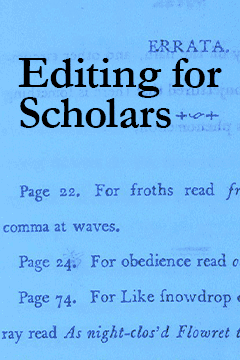Reinventing Stalin in Tehran
Reinventing Stalin in Tehran
R. Jahanbegloo: Reinventing Stalin
AFTER NEARLY two months of post-election turmoil in Iran during which dozens have been killed and hundreds jailed, last week’s show trials of more than a hundred reformists were a reminder of the Moscow show trials of 1936-38 when “old Bolsheviks” were accused of counter-revolutionary activity, sabotage, murder, and collaboration with fascists. As in the Moscow trials that coincided with the climax of Stalin’s “Great Purges,” the Tehran trials are a public symbol of a coup against some of the revolution’s architects who are now being accused of promoting a “velvet revolution” in Iran.
For Stalin, the Moscow trials were a means of shifting the blame to scapegoats who might otherwise have supplanted him. By accusing his opponents of espionage and terror, Stalin made the lie big enough to stick. In the case of the Tehran trials, the confessions are designed not only to support unsubstantiated allegations by senior government officials that Iran’s post-election protests were supported by foreign powers and aimed at overthrowing the government, but also to end the dispute over the legitimacy of the June 12 presidential election that returned hard-line President Mahmoud Ahmadinejad to power.
The confessions, almost certainly produced under harsh interrogations, beatings, sleep deprivation, and threats of torture, are also meant to frighten the Iranian reformers and civil society activists, including top-ranking political figures such as the opposition candidate Mir Hossein Mousavi and two former presidents, Mohammad Khatami and Ali Akbar Rafsanjani.
Among those accused and forced to “confess” are Kian Tajbakhsh, an Iranian-American scholar, and Maziar Bahari, an Iranian-Canadian journalist, who have been charged as agents who helped orchestrate the post-election protests. Tajbakhsh—who was arrested and released in 2007 on charges of seeking to foment a velvet revolution—alleged that “the main instigators of the riots” were “the government, semi-government, and intelligence services of the United States.” As for Bahari, he testified that for him “the first step was to propagate the thought of questioning religious authority and maintain that the Islamic Republic of Iran has no popular support.” In Washington, the U.S. State Department Deputy Spokesman Robert Wood told reporters that Tajbakhsh “played absolutely no role in the election and poses no threat to the Iranian Government or its national security” and firmly urged the Iranian government to release him.
The Obama administration has continued to voice sympathy for Iran’s opposition while asking the Iranian government to respond to an invitation for unconditional talks with the West on its nuclear weapons program. As for Canada, the recent speech delivered by the Canadian Prime Minister, Stephen Harper, in Surrey, British Columbia, leaves no shadow of doubt on the critical position of the Canadian government in regard to the Iranian regime. This position is also shared by most members of the EU, who have refused to send Ahmadinejad congratulatory letters.
The European countries, however, have decided not to enter into a political row with Tehran, fearing that it may diminish the hope of a diplomatic solution to the nuclear dispute. It goes therefore without saying that the United States and its European allies, who are deeply concerned that Iran’s uranium enrichment program as a cover for the development of a future atomic weapon, are working on setting up a new round of talks with Iran. President Obama had said previously that the United States would participate at these talks, and there would be no additional sanctions on Iran if it freezes nuclear development work.
However, by cutting off Iran’s import of gasoline and other oil products, the Obama administration could make matters even worse and dialogue with Iran more difficult. The Iranian government has shrugged off U.S. threats of gas embargoes, asserting that the country would meet its domestic demands from alternative routes—namely Russia and China, who have refused to participate in the hard-hitting trade embargoes. In addition, tough sanctions on Iran would have a terrible impact on Iranian civil society. The more such sanctions are imposed, the more anti-Western and nationalistic Iranian politics becomes—giving Ahmadinejad’s government a chance to consolidate power and reinforce its repressive measures.
Until this moment, the aim of the regime’s violent response to the non-violent protests has been to prevent the movement’s expansion and the escalation of political demands. In this unbalanced confrontation, the main question is how long can the civic movement in Iran remain nonviolent? Ahmadinejad’s government has interpreted the peacefulness and nonviolence of the movement as a weakness and an invitation to use more violence on the streets and in the court rooms.
The current strategy adopted by the United States and its allies assumes that the new regime might be open to major concessions on the nuclear question, but that it will continue to violate human rights. But there is still the possibility of sustaining the Iranian struggle for justice and freedom in the coming months and years. It is unlikely to command the interests of the Americans and Europeans who are focused on the Iranian nuclear issue—but it is nevertheless a more righteous path for it seeks to protect those whose rights are being presently violated.
Ramin Jahanbegloo, a well-known Iranian-Canadian philosopher, is Professor of Political Science and a Research Fellow in the Centre for Ethics at the University of Toronto.




